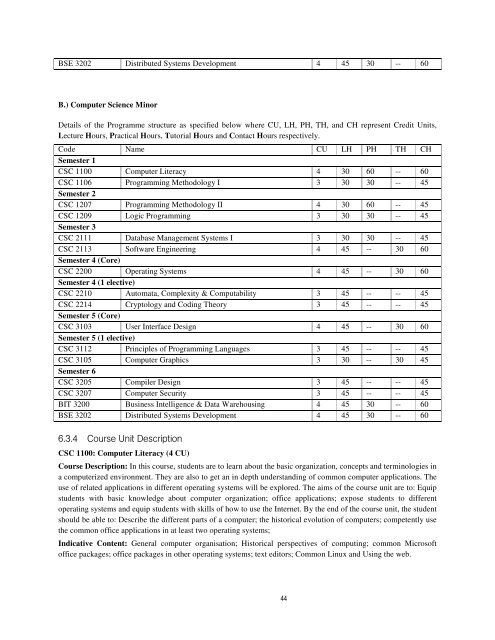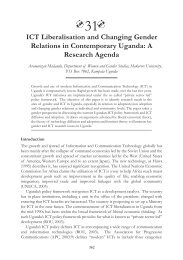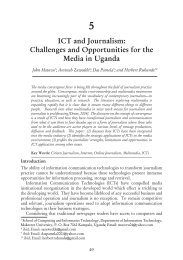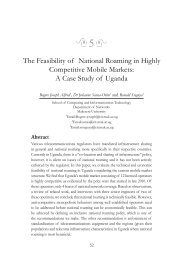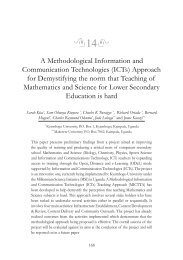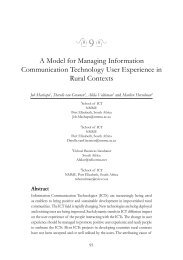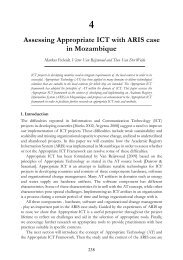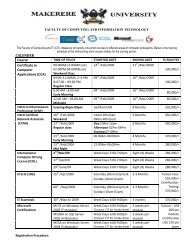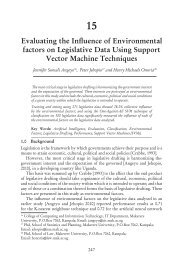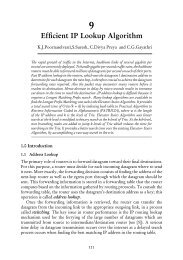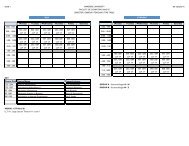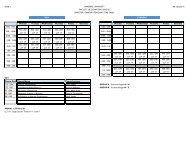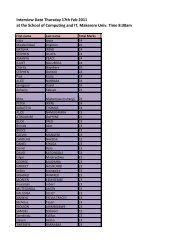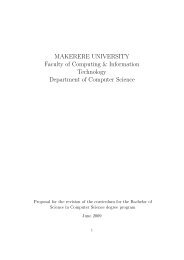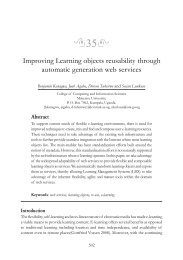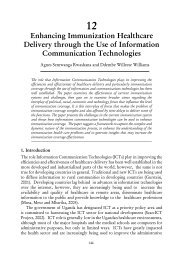Undergraduate Handbook - School of Computing and Informatics ...
Undergraduate Handbook - School of Computing and Informatics ...
Undergraduate Handbook - School of Computing and Informatics ...
Create successful ePaper yourself
Turn your PDF publications into a flip-book with our unique Google optimized e-Paper software.
BSE 3202 Distributed Systems Development 4 45 30 -- 60<br />
B.) Computer Science Minor<br />
Details <strong>of</strong> the Programme structure as specified below where CU, LH, PH, TH, <strong>and</strong> CH represent Credit Units,<br />
Lecture Hours, Practical Hours, Tutorial Hours <strong>and</strong> Contact Hours respectively.<br />
Code Name CU LH PH TH CH<br />
Semester 1<br />
CSC 1100 Computer Literacy 4 30 60 -- 60<br />
CSC 1106 Programming Methodology I 3 30 30 -- 45<br />
Semester 2<br />
CSC 1207 Programming Methodology II 4 30 60 -- 45<br />
CSC 1209 Logic Programming 3 30 30 -- 45<br />
Semester 3<br />
CSC 2111 Database Management Systems I 3 30 30 -- 45<br />
CSC 2113 S<strong>of</strong>tware Engineering 4 45 -- 30 60<br />
Semester 4 (Core)<br />
CSC 2200 Operating Systems 4 45 -- 30 60<br />
Semester 4 (1 elective)<br />
CSC 2210 Automata, Complexity & Computability 3 45 -- -- 45<br />
CSC 2214 Cryptology <strong>and</strong> Coding Theory 3 45 -- -- 45<br />
Semester 5 (Core)<br />
CSC 3103 User Interface Design 4 45 -- 30 60<br />
Semester 5 (1 elective)<br />
CSC 3112 Principles <strong>of</strong> Programming Languages 3 45 -- -- 45<br />
CSC 3105 Computer Graphics 3 30 -- 30 45<br />
Semester 6<br />
CSC 3205 Compiler Design 3 45 -- -- 45<br />
CSC 3207 Computer Security 3 45 -- -- 45<br />
BIT 3200 Business Intelligence & Data Warehousing 4 45 30 -- 60<br />
BSE 3202 Distributed Systems Development 4 45 30 -- 60<br />
6.3.4 Course Unit Description<br />
CSC 1100: Computer Literacy (4 CU)<br />
Course Description: In this course, students are to learn about the basic organization, concepts <strong>and</strong> terminologies in<br />
a computerized environment. They are also to get an in depth underst<strong>and</strong>ing <strong>of</strong> common computer applications. The<br />
use <strong>of</strong> related applications in different operating systems will be explored. The aims <strong>of</strong> the course unit are to: Equip<br />
students with basic knowledge about computer organization; <strong>of</strong>fice applications; expose students to different<br />
operating systems <strong>and</strong> equip students with skills <strong>of</strong> how to use the Internet. By the end <strong>of</strong> the course unit, the student<br />
should be able to: Describe the different parts <strong>of</strong> a computer; the historical evolution <strong>of</strong> computers; competently use<br />
the common <strong>of</strong>fice applications in at least two operating systems;<br />
Indicative Content: General computer organisation; Historical perspectives <strong>of</strong> computing; common Micros<strong>of</strong>t<br />
<strong>of</strong>fice packages; <strong>of</strong>fice packages in other operating systems; text editors; Common Linux <strong>and</strong> Using the web.<br />
44


